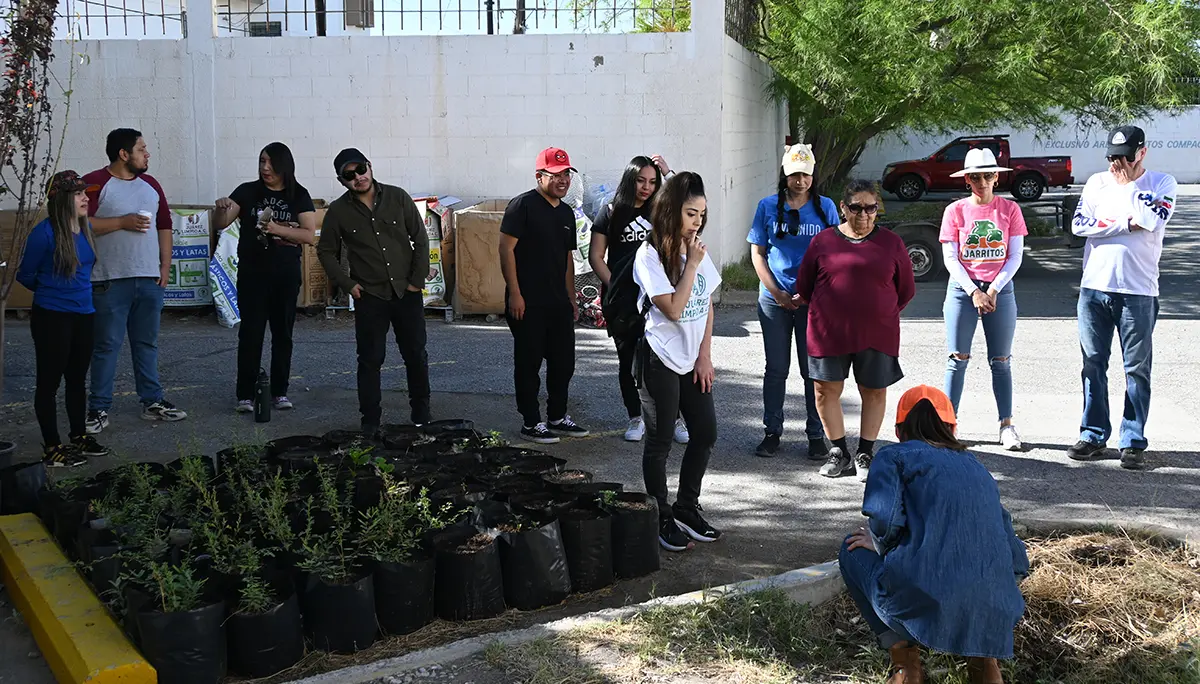Community Environmental Education as An Environmental Justice and Climate-resilience Strategy in Ciudad Juárez
Organization: Juárez Limpio, A.C.
Mission: To promote and defend the right to a healthy environment and the right to the city in Ciudad Juárez.
Location: Ciudad Juárez, Chihuahua
Communities benefiting directly from the project: Approximately 27,300 persons live in human settlements with low to very low levels of well-being, as well as moderate, high, or very high levels of social disadvantage, in the vicinity of the sites where the activities will be carried out. In particular, work will be done with minorities belonging to Mazahua Indigenous communities, with student communities, and with other local communities.
Country: Mexico
Other Organizations Involved: Arte en el Parque, A.C., Cehlíder, A.C., Colegio de la Frontera Norte, A.C., Environment Department, Municipality of Juárez, Recycling Point, Instituto Nacional de Pueblos Indígenas (INPI), Resiliency Office, Municipality of Juárez, Plan Estratégico de Juárez, A.C. (Juárez Strategic Plan), Environment and Protection Commission of the city councilors group of the Municipality of Juárez, S-Mart supermarkets and University of Texas at El Paso.
 @ Juárez Limpio A.C.
@ Juárez Limpio A.C.
Background
The effects of climate change in Ciudad Juárez result in a direct correlation between dangerous events and vulnerable populations. Droughts, prolonged heat waves, torrential rainfall, and landslides have been documented in the localities of this area. These weather events are worsened by their scattering of urban wastes—both solid and specially managed wastes—and the resulting affects on people’s quality of life.
The effects of heat waves and rainfall-induced flooding are exacerbated by the vulnerable socioeconomic context of the affected communities. According to simulations carried out by the Resiliency Office of the Municipality of Juárez, this situation is expected to intensify from now until the end of the decade.
The proposal is to work with populations categorized as vulnerable, based on the current state of infrastructure in their settlements and on the above-mentioned risks, as well as with certain Indigenous communities experiencing systematic inequalities.
Goals
The project aims to achieve the following goals:
- 50% of the persons surveyed agree with the measures contained in the participatory waste management plan;
- a 100% increase in the number of projects created in conformity with the applicable environmental regulations;
- an average grade of 7.5 on testing administered through the climate change adaptation virtual learning platform;
- a 5.0 rating on climate change adaptation awareness among program participants;
- a 20% increase in vegetative cover, with species typical of the Juárez ecosystem in the zones of intervention.
Main activities
- Urban environment improvement days.
- Community-based classification of waste and contaminated sites.
- Circular innovation focus groups.
- Structuring of a participatory waste management plan.
- Review and analysis of municipal environmental bylaws.
- Drafting of proposals by community members.
- Development of a virtual learning platform.
- Two editions of the mesquite festival.
- Environmental recreation days.
- Urban gardening workshops.
- Environmental workshops using artistic techniques.
- Community environmental volunteering seminar.
- Community rain garden construction days.
Expected outcomes
- Communities and key actors create and implement a participatory waste management plan for the area.
- Citizens and environment-related institutions in Ciudad Juárez know and identify the risks associated with climate change.
- People living in the west end of Ciudad Juárez, who are particularly vulnerable to weather events, are sensitized to the effects of climate change and to possible adaptation measures.
- The impact of weather events on the vulnerable population of areas exposed to climate change-related problems is reduced.